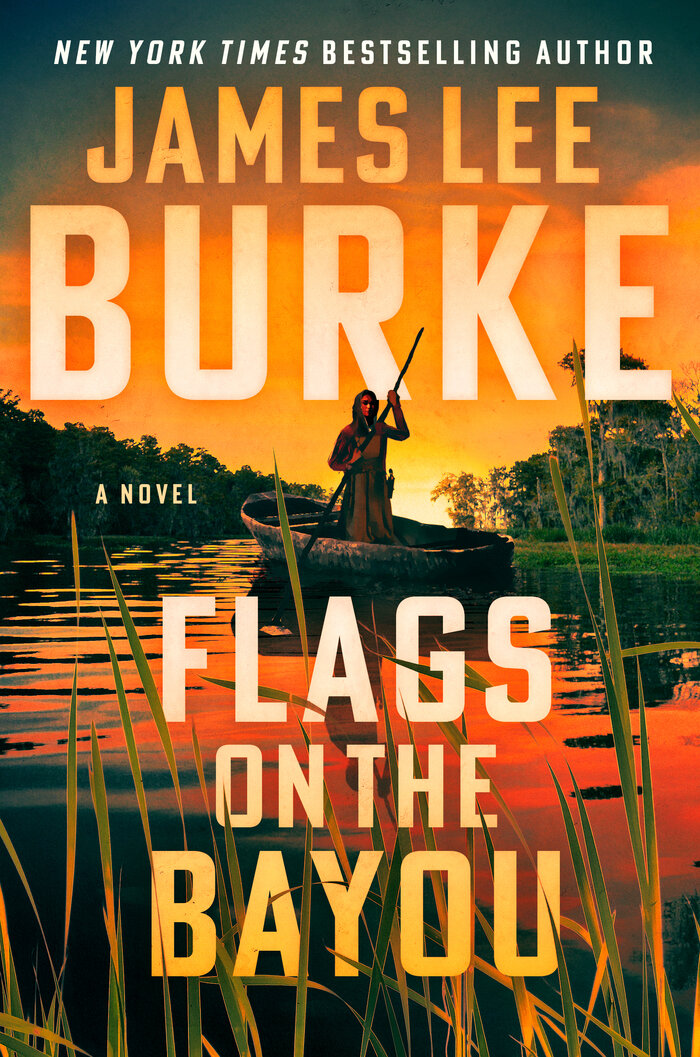
Flags on the Bayou
Book Description
In the haunting heat of Louisiana's bayou, a murder unravels a tapestry of secrets that intertwine the lives of a detective wrestling with his past and a community gripped by fear. As the swamp whispers tales of betrayal and lost souls, friendships are tested, loyalties strained, and the line between good and evil blurs. Bursting with vivid imagery and emotional depth, 'Flags on the Bayou' invites readers into a world where ghosts of history loom large and redemption may come at a deadly cost. Can justice prevail before the shadows claim more lives?
Quick Book Summary
Set against the sultry backdrop of Civil War-era Louisiana, "Flags on the Bayou" by James Lee Burke offers a gripping blend of historical fiction and mystery. When a shocking murder is discovered, the event reverberates through a tightly-knit community already strained by violence, shifting allegiances, and buried secrets. At the story's center is a troubled detective, wrestling with his own past sins, who is drawn into the marshy labyrinth of clues and conflicting motivations. Burke masterfully evokes the tension, atmosphere, and moral ambiguity of the time, delving into personal and collective histories that haunt the bayou's residents. As old friendships falter and betrayals come to light, each character is forced to confront the shadows both around and within them. Through evocative prose and deeply human drama, the novel examines whether redemption and justice can truly be found when the ghosts of history are never far away.
Summary of Key Ideas
Table of Contents
The Enduring Shadows of the Past
Amid the chaos and uncertainty of the Civil War, the Louisiana bayou becomes more than just a setting—it’s a living presence, its oppressive heat and haunting landscape reflecting the tensions bubbling up within its community. The story opens with a grisly murder, an act that serves as a catalyst for the unraveling of a tightly-knit, yet troubled society. Burke employs rich, atmospheric detail to convey the sense of intrusion, as violence disrupts not only the domestic lives of the residents but also the delicate balance between tradition and change.
Moral Ambiguity in Times of War
Central to the narrative is a detective burdened by personal demons, making him a complex and deeply human protagonist. His investigation into the murder brings him into contact with a swath of local characters, each drawn with nuance and ambiguity. Old friends become suspects, and alliances shift as fear and suspicion grip the bayou. Burke uses the detective's journey to explore how individuals wrestle with their own complicity in greater societal wrongs, particularly amidst the moral confusion wrought by war.
The Complexity of Justice and Redemption
Themes of loyalty and betrayal are interwoven throughout the novel as characters are forced to choose sides, sometimes against their own interests and principles. Relationships that once seemed stable are tested under the weight of secrets and external threats, highlighting how war can corrode even the deepest bonds. Through their struggles, Burke interrogates the limits of trust and the ways in which communities can be both fractured and, paradoxically, held together by adversity.
Community, Betrayal, and Loyalty
The bayou itself is rendered as a virtually sentient force—mysterious, menacing, and steeped in history. Its tangled waterways and whispering trees conceal not only literal evidence but also emotional truths that characters are loath to face. The omnipresent swamp serves as a metaphor for the inescapable past, ever encroaching on the present and shaping the choices of those who call it home. Its presence amplifies the book’s spiritual undertones, underscoring the characters’ grappling with guilt, forgiveness, and the desire for redemption.
The Haunting Presence of the Bayou
Ultimately, "Flags on the Bayou" is a meditation on justice, both legal and personal. Burke examines whether it is possible to achieve true justice when the lines between good and evil have become so thoroughly blurred. As the mystery draws toward its conclusion, the possibility of redemption remains tantalizing yet elusive. In the end, the greatest battles must be fought within, as each character seeks to reconcile the person they have been with the person they hope to become, all while the ghosts of history linger just beyond the marshes.
Download This Summary
Get a free PDF of this summary instantly — no email required.





